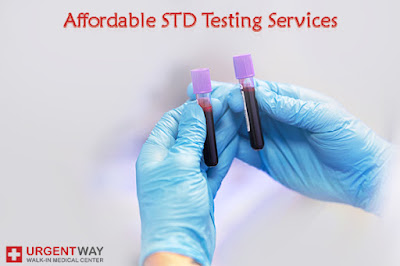STD testing facts
Getting tested for sexually transmitted infections (STIs) and sexually transmitted infections (STIs) is essential to good sexual health. Knowing the importance of passing the test with confidence and peace of mind. Despite all the proven health benefits, many misconceptions and myths prevent people from getting tested for STDs.
Embarrassed about getting an STD test
Don't be embarrassed about getting tested for STDs because it can be done very well. There is no shame in taking care of your physical health. It's a responsible decision that can make the difference between a full recovery and a serious illness.
STD tests are reported.
STD tests are reported for data and statistics only. Your profile and personal information will be kept confidential. While it's true that you need to be on-site to run an STD test, it's a completely private process. Your doctor will not share your results with anyone. A private notification will be sent when all lab results are available.
STD tests are painful.
Testing for an STD is painless. In some cases, a doctor can place a simple cotton swab on the inside of the cheek to test for STDs. In other cases, your doctor will order lab tests that involve drawing a sample of blood, but this procedure is usually painless. Some STDs require a urine test. The examination is often quick, usually painless, and always performed professionally.
STD tests always lead to bad news.
STDs don't always lead to bad news. 50% of sexually active people will have an STD by the age of 25, and 50% of sexually active people will not have it yet. More importantly, there are ways to manage and treat almost all STDs, so your doctor can guide you through treatment options even if your test results are benign.
STDs go away on their own.
STDs don't go away on their own. All STDs require treatment or progress. Only by testing and properly diagnosing an STD can you know the optimal treatment plan. People can carry some of the most common STDs without seeing a single symptom. Infections such as HPV, herpes, chlamydia, and gonorrhea can take weeks before symptoms are noticed ( It can be present in the body for several years in some cases).
STDs are no longer common.
Sexually transmitted diseases are common and remain a major public health problem. Gonorrhea, syphilis, and chlamydia have all reached record highs. Even monogamous couples and pregnant women can get it. Even more alarming, certain strains of gonorrhea are now resistant to treatment.
STD testing near me is too expensive
If STI tests are too expensive in your area, look for emergency care centers such as UrgentWay clinic in New York City that offer these tests at an affordable price. Find something that is inexpensive, yet as accurate as possible.
A primary doctor needs to do my STD test.
Your primary doctor doesn’t need to administer your STD test. You can have yourself examined by a doctor of your choice. The majority of our patients prefer to be tested in an urgent care setting rather than by a regular physician due to their sensitivity and expertise in this rapidly changing environment.
STD tests are not accurate.
STD tests are 99% accurate when taken at an accredited healthcare facility. If you take the test through an online office, there is a very high chance that your results will be inaccurate. Companies that deliver quick and cheap results rarely use demanding laboratories. The same goes for STD home test kits.
Condoms can protect against STDs.
When used correctly, condoms can protect you from STDs. Consistently using protection during sex is the first step in taking responsibility for your health and the health of others. The best precaution is that 50% of people are diagnosed with STDs. It is to
However, STDs are spread through skin-to-skin contact and contact with bodily fluids such as saliva, so you should get tested even if you don't wear women's protective gear every time.




Comments
Post a Comment